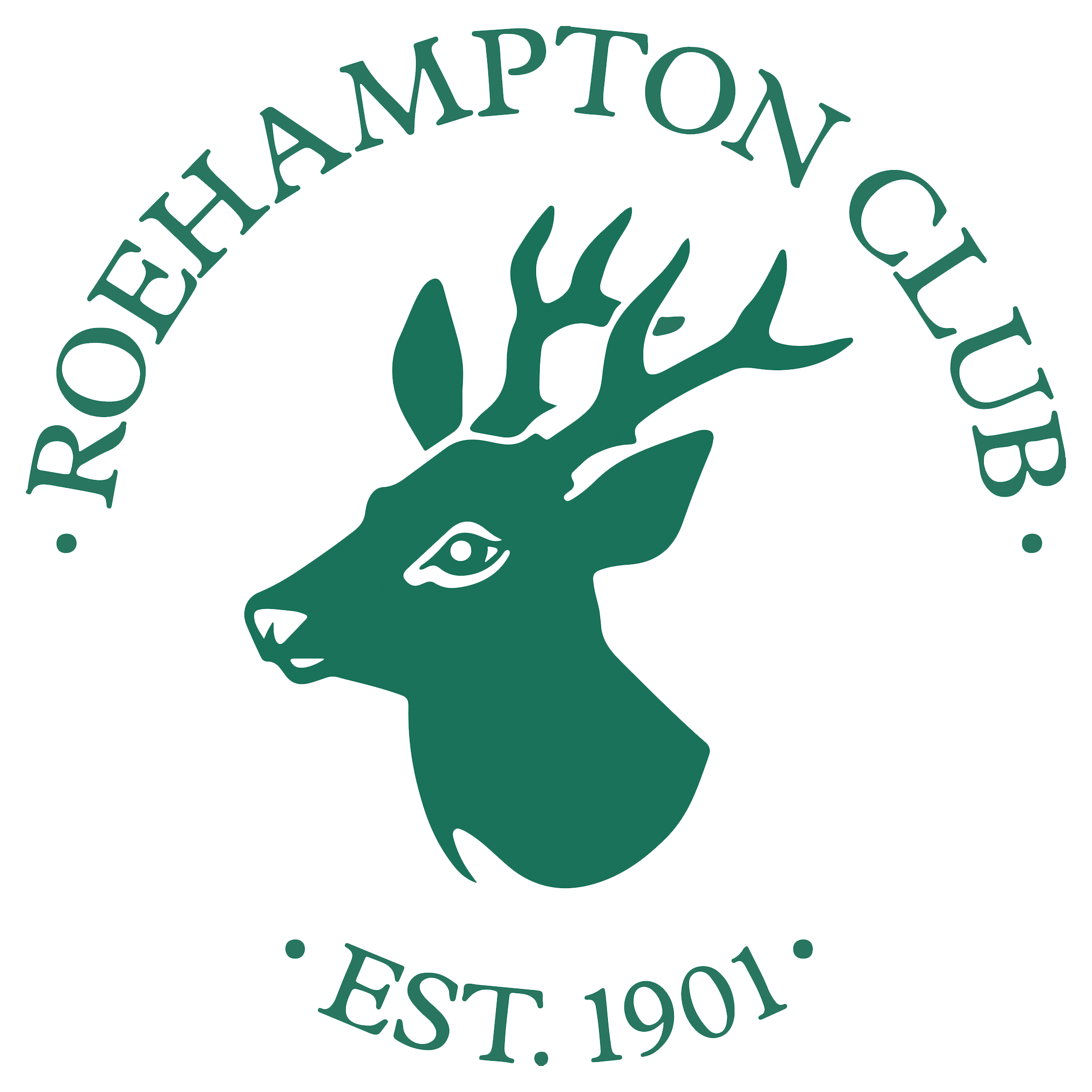The Bystander magazine in August 1934 carried a three-page feature of the Club highlighting its popularity and social standing across its many sports with additional references to the running of the Club, and the quality of its grounds. Those responsible are singled out for their devotion to the Club and their length of service. They are shown as caricature figures emphasising their appearance and responsibilities. The article was written by leading British journalist, travel writer and novelist Charles Graves. He was educated at St John’s College, Oxford where he also pursued his interest in sport, playing cricket, ice hockey and golf. He started his career at the Daily Express in 1921 and went on to work for many other newspapers and periodicals, often as a freelance contributor. In the previous year of joining the Express, Charles had become the first student to enrol in the London School of Journalism founded that year by Sir Max Pemberton.
From the Archives
Life at Roehampton Club in 1934
At various times in his career, Charles applied his creative writing skills as a theatre critic, crime reporter, sportswriter, war correspondent, travel writer and gossip columnist. He was part of a large and creative literary family and among his nine siblings were Robert Graves and Philip Graves who also achieved recognition for their writing. Charles’ work as a gossip columnist bought him into contact with celebrities, politicians, sportsmen, royalty, and business leaders, some of whom became friends. In the Literary world this included notable writers such as George Bernard Shaw, PG Wodehouse, Somerset Maugham, and Rudyard Kipling, some of which wrote introductions to his books.
Charles was no stranger to the high life, often travelling at the expense of his newspaper to the fashionable French resorts of Dinard, La Baule-Escoublac, Biarritz, Cannes, Deauville and Le Touquet. He would continue his associations with these popular locations in his personal life, travelling with his wife, staying at the best hotels, playing golf during the day, eating at the best restaurants, and finishing the evenings in exclusive nightclubs and casinos where he became fascinated by high stakes gambling. He wrote two books about gambling which had also caused him financial difficulties in his married life recorded in the memoirs of his wife. Each of these lavish holidays would result in a new travel book.
His travel writing in this area helped to popularise international travel as a desirable leisure activity culminating in a description of him in The Times as “The Laureate of the pleasure resorts”. Charles was also attracted to high society in London in the 1920’s and 1930’s and his institutional histories became a source of valuable information for the organisations concerned. His feature article about Roehampton Club begins with its origins in the world of Polo and the other sports that soon followed. He mentions the King of Spain and the Aga Khan playing golf. He refers to the Prince of Wales and the Duke of York as Honorary Members. He talks of leading squash player, Amr Bey, champions and ex champions in croquet and tennis and the many players who play bridge together in a section of the Club chaired by Captain Emslie Brown. Other Members also mentioned include the Duke of Alba and the Marquis de Portago described as “probably the best-looking member when he is there, except possibly, Lord Louis Mountbatten”.
Charles Graves must have enjoyed his time at Roehampton Club with his sympathetic reflection of an environment he clearly enjoyed and the qualities he recognised in terms of style and substance. He was a true socialite basking in the good life spending his time with people he saw as trendsetters in the world of fashion. In his autobiography, he wrote the following words as a poignant legacy of his approach to life.
“What is happiness? I did not yet know. But I had already learnt that to have any chance of success in life one must be able to ‘take it’; that tact can be worth all the genius in the world; that unless you specialise you will never make more than £800 a year; that it is madness to disbelieve in luck and the cycles of luck; that you have to spend money to make money; that you must at all costs keep your youthful enthusiasms; that the hardest lesson to learn is that you must allow your heroes to remain your heroes, even if you become their valet; that the two greatest influences in a man’s life are his mother and his wife; that marriage will either make you or break you, because it can never leave you the same”.
